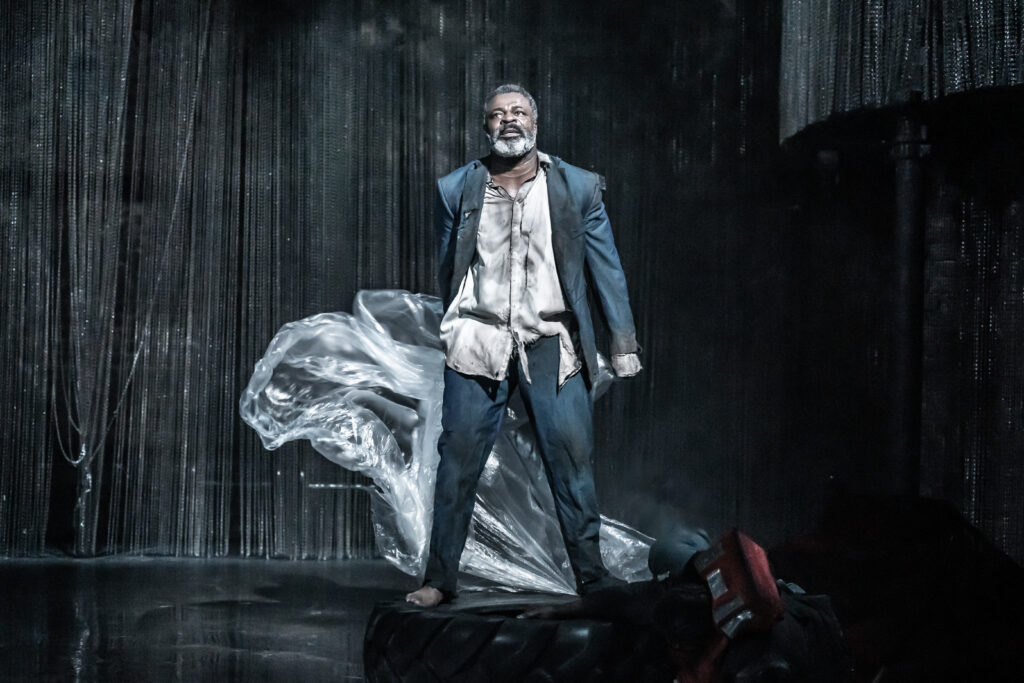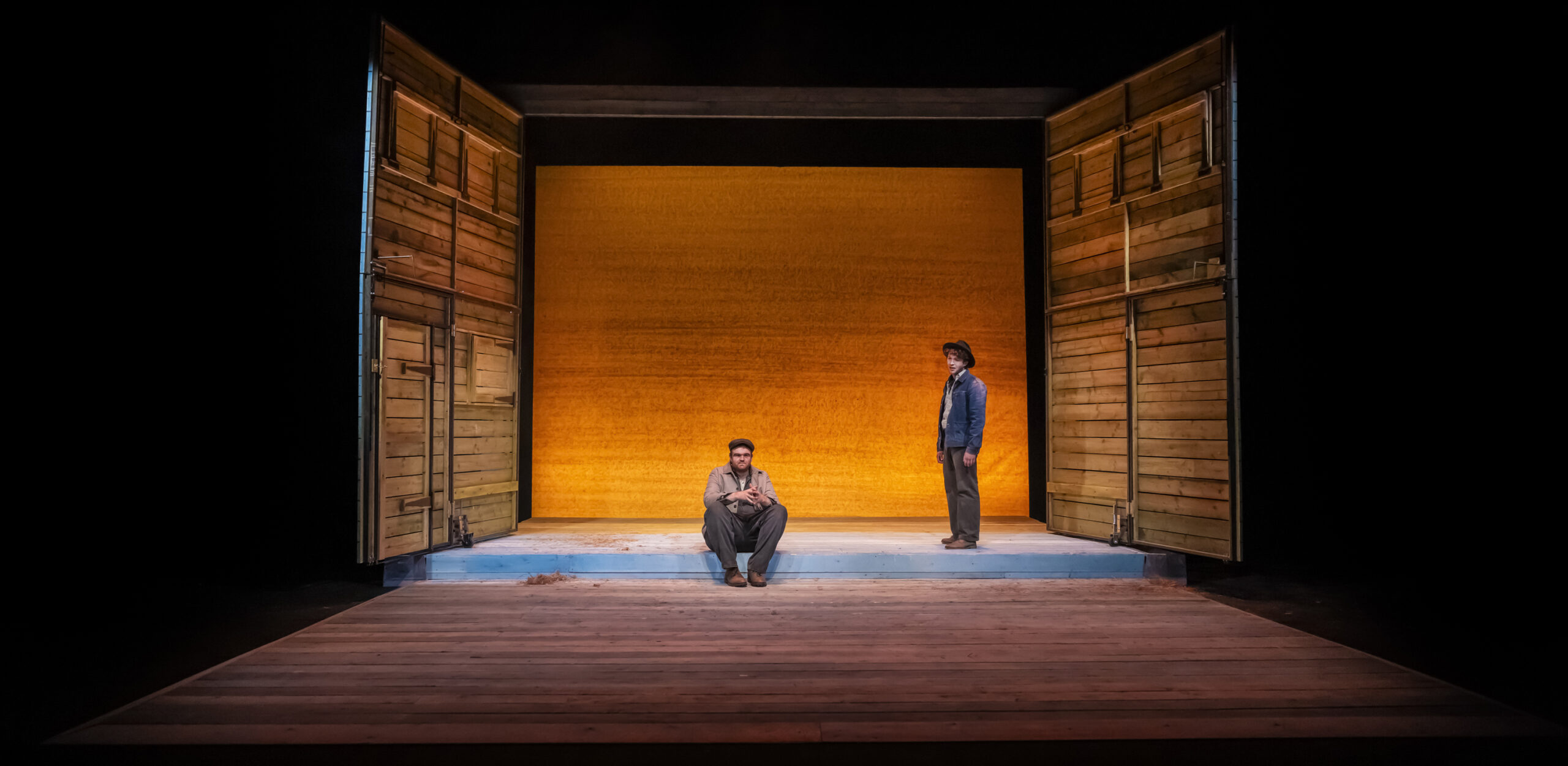
From the opening seconds, as Sapani removes his vest to reveal a musclebound back, this feels like no ordinary Lear. Here, it seems that Lear is giving up the throne, not because of his four-score and upward age or out of any physical or mental affliction, but out of boredom. In the division of his kingdom, via a choreographed live broadcast to the nation, Lear seems bored and disinterested until Cordelia (Gloria Obianyo) upsets his plans with her off-script and honest approach to fatherly admiration.
The stylised approach to the opening scene sets the tone for Yaël Farber’s dark and brooding production. Drone-like sound design by Peter Rice, sometimes played on stage by two violinists who at times wield their instruments like weapons, and Lee Curran’s lighting provides much of the atmosphere, Curran suggesting unknown depths to the Almeida’s stage as characters disappear into low-lit fog at the back of Merle Hensel’s cold, metallic set which becomes strewn with ash as Lear’s world begins to burn around him. The cracks and flashes of lightning feel real and dangerous.

So too does Sapani’s Lear. At 53, Sapani is a young Lear, and this is very much reflected in the intense physicality he brings to the role. With a voice is rich and booming voice, he is undoubtedly a king but this vicious tyrant could burst in anger at any moment, such is the rage that burns inside him. He is a man whose bow is permanently bent and drawn, ready to unleash his wrath – and you do not doubt the threats, at least not until his mind begins to betray his body. He maintains that fearsome power throughout his descent, and as Sapani’s Lear rages at the storm, with the Fool (Clarke Peters) huddling beneath him for safety, he is as ferocious as the tempest itself.
The approach to the Fool feels like a fundamental decision by Farber – it’s no surprise that there is an entire essay in the programme about the character’s role. Peters’ Fool is more like a wise elder than the stereotypical comic jester who hits on the occasional nugget of wisdom; everything Peters’ Fool says is loaded with meaning, and Peters delivers it all with such gravitas that you would happily just watch him for hours. Strikingly, only Lear seems to be aware of this mystic Fool – there are the usual references to him within the text, ‘Did my father strike my gentleman for chiding of his Fool?’ says Goneril (the excellent Akiya Henry), but none of the characters acknowledges his presence when he is on stage. There is a suggestion that the Fool we see is not the Fool the other characters know – that he is instead part of Lear’s subconscious and a reflection of his declining mental state. This interpretation goes some way to explaining the Fool’s departure in the storm when the last vestiges of Lear’s sanity depart him too.

In some ways, following hot on the heels of Kenneth Branagh’s condensed two-hour Lear in the West End last year highlights the issues with this production. Farber goes all in with the full text and adds a few striking musical additions, taking the production’s running time to 3 hours 45 minutes. It gives room for the subplot involving the bastard Edmund’s (Fra Fee) attempts to usurp his father Gloucester (Michael Gould) and his brother Edgard (Matthew Tennyson) room to exist in its own right, which is all the better given a superb performance by Fee, who finds increasing layers of malevolence to Edmund while speaking the text with such fluidity and naturalism that we gain a greater understanding of the character. Treating the subplot in this way adds to the main plot too, drawing out the parallels between them; in the dying moments Goneril and Regan (Faith Omole) are caught mirroring the movements of Edmund and Edgar.
However, there are downsides to treating the play in this way. You’ve already been seated for two hours (the entire length of Branagh’s version) by the time you reach the end of Act One, but you’ve already covered most of the play’s ground too, with all that’s left after the interval is to spend the next 90 minutes tying up the loose ends, of which there are many. As good as Fee is, the ‘which of the two sisters will Edmund go for’ subplot begins to lag, and everything else feels like it could be resolved more quickly. Branagh’s uber-condensed text went too far, but there’s something to be said for a light touch with a scalpel.















